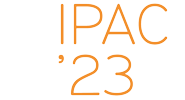Speaker
Description
LhARA*, the ‘Laser-hybrid Accelerator for Radiobiological Applications’, will be a novel, uniquely flexible, facility dedicated to the study of radiobiology. LhARA will use a high-power pulsed laser to generate a short burst of protons or light ions. These will be captured using strong-focusing electron-plasma (Gabor) lenses. Acceleration using a fixed-field alternating-gradient accelerator will deliver proton beams with energies up to 127 MeV and ion beams, such as C^6+, with energies up to 33.4 MeV/nucleon. The laser-hybrid source allows high instantaneous dose rates of up to 10^9 Gy/s to be delivered in short (10–40 ns) pulses.
The laser-hybrid approach will allow the exploration of the vast “terra incognita” of the mechanisms by which the biological response to radiation is modulated by the beam’s characteristics. The technologies to be demonstrated in LhARA have the potential to allow particle-beam therapy to be delivered in completely new regimens, providing a variety of ion species in a range of spatial configurations and exploiting ultra-high dose rates**.
This contribution describes the status of the LhARA project in the context of the Ion Therapy Research Facility***.
Footnotes
- Aymar G. et al. Front Phys. 2020;0:432.
** The LhARA collaboration, “The LhARA initiative”, https://ccap.hep.ph.ic.ac.uk/trac/raw-attachment/wiki/Research/DesignStudy/2021-10-02-LhARA-Brief-Final.pdf
*** Clark, J. et al., “Ion Therapy Research Facility”, https://ccap.hep.ph.ic.ac.uk/trac/raw-attachment/wiki/Research/DesignStudy/Proposals/2021/2021-06-15-ITRF-1-page-Final.pdf
Funding Agency
STFC; the authors acknowledge the support from all collaborating institutes and their funding agencies.
| I have read and accept the Privacy Policy Statement | Yes |
|---|
